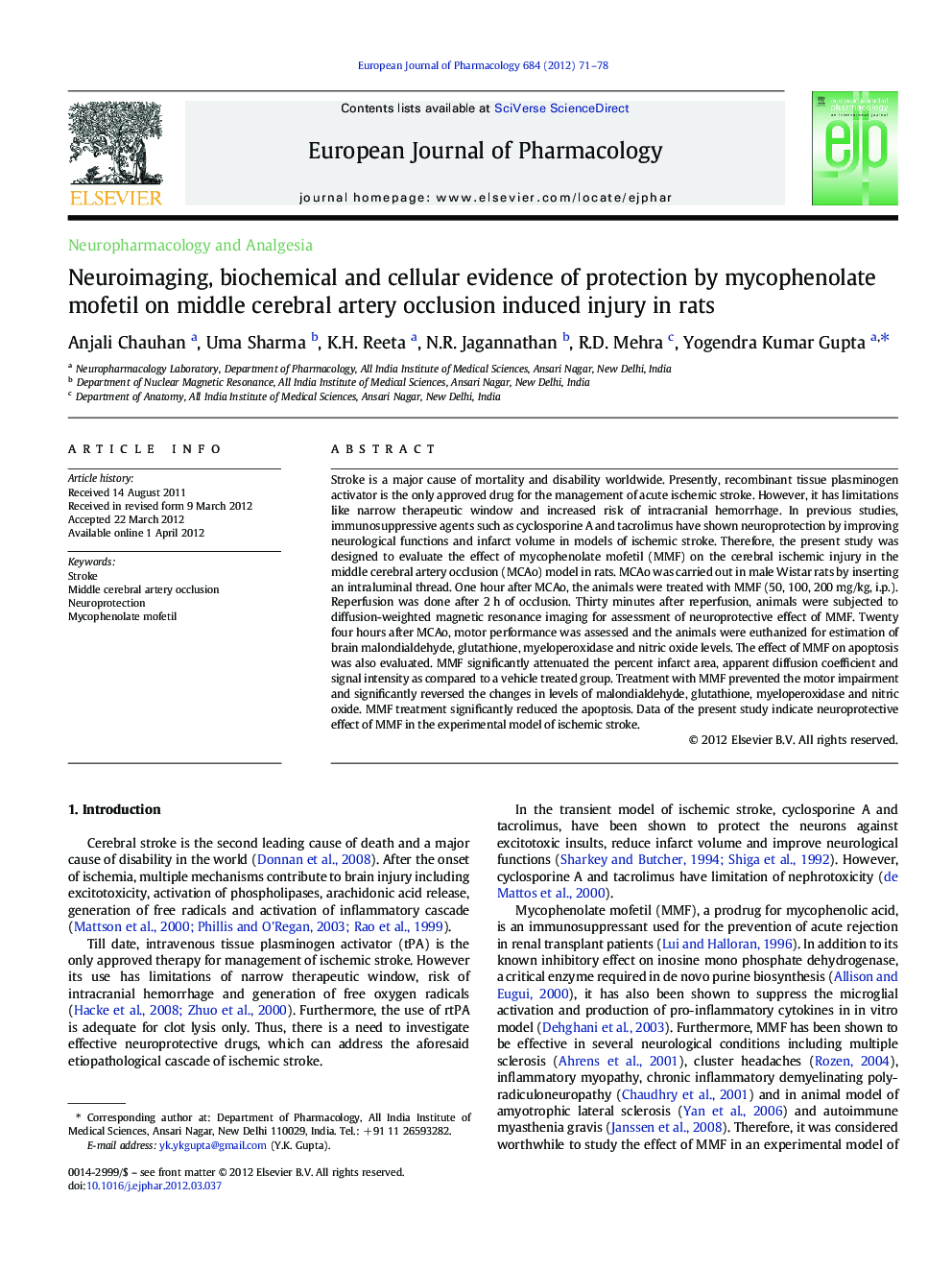| Article ID | Journal | Published Year | Pages | File Type |
|---|---|---|---|---|
| 5829548 | European Journal of Pharmacology | 2012 | 8 Pages |
Abstract
Stroke is a major cause of mortality and disability worldwide. Presently, recombinant tissue plasminogen activator is the only approved drug for the management of acute ischemic stroke. However, it has limitations like narrow therapeutic window and increased risk of intracranial hemorrhage. In previous studies, immunosuppressive agents such as cyclosporine A and tacrolimus have shown neuroprotection by improving neurological functions and infarct volume in models of ischemic stroke. Therefore, the present study was designed to evaluate the effect of mycophenolate mofetil (MMF) on the cerebral ischemic injury in the middle cerebral artery occlusion (MCAo) model in rats. MCAo was carried out in male Wistar rats by inserting an intraluminal thread. One hour after MCAo, the animals were treated with MMF (50, 100, 200Â mg/kg, i.p.). Reperfusion was done after 2Â h of occlusion. Thirty minutes after reperfusion, animals were subjected to diffusion-weighted magnetic resonance imaging for assessment of neuroprotective effect of MMF. Twenty four hours after MCAo, motor performance was assessed and the animals were euthanized for estimation of brain malondialdehyde, glutathione, myeloperoxidase and nitric oxide levels. The effect of MMF on apoptosis was also evaluated. MMF significantly attenuated the percent infarct area, apparent diffusion coefficient and signal intensity as compared to a vehicle treated group. Treatment with MMF prevented the motor impairment and significantly reversed the changes in levels of malondialdehyde, glutathione, myeloperoxidase and nitric oxide. MMF treatment significantly reduced the apoptosis. Data of the present study indicate neuroprotective effect of MMF in the experimental model of ischemic stroke.
Related Topics
Life Sciences
Neuroscience
Cellular and Molecular Neuroscience
Authors
Anjali Chauhan, Uma Sharma, K.H. Reeta, N.R. Jagannathan, R.D. Mehra, Yogendra Kumar Gupta,
